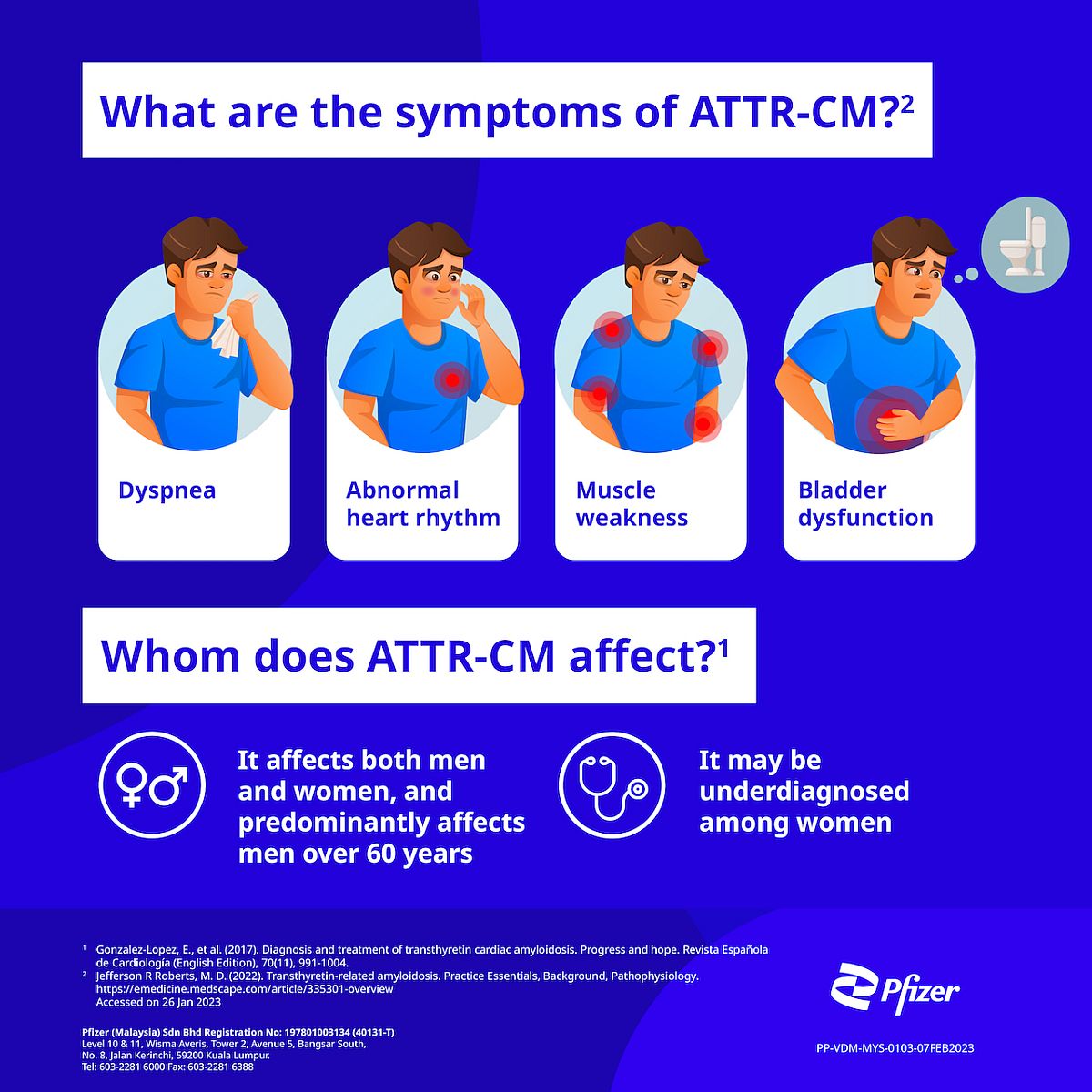KUALA LUMPUR, May 9 – In an effort to encourage people to take care of their heart health, Pfizer Malaysia is calling for Malaysians to learn more about transthyretin amyloid cardiomyopathy (ATTR-CM), a rare, life-threatening disease.
ATTR-CM is caused by unstable transthyretin proteins that misfold and aggregate into amyloid fibrils that build up in the heart and other parts of the body. This build-up of amyloid then causes the heart muscle to stiffen over time, eventually leading to heart failure.
“It is Pfizer’s goal to raise awareness for the disease centred around driving early detection of ATTR-CM, which can greatly improve quality of life of Malaysian patients living with the condition,” said Luksanawan Thangpaibool, country manager, Pfizer Malaysia, Brunei, and Pakistan.
“ATTR-CM is still widely unknown as it is a rare disease that can often be overlooked as a cause of heart failure. Not many people are aware of ATTR-CM.
“Although patients with ATTR-CM can access treatment options, late detection causes delays in these treatments, affecting the patients’ condition. This is why at Pfizer, we believe that driving awareness is crucial, to help more people learn about ATTR-CM and the importance of early detection in treating those with the disease,” she added.
ATTR-CM, Often Underdiagnosed And Overlooked
“Diagnosis of ATTR-CM is often delayed or underdiagnosed due to the lack of optimal diagnostic modalities,” said Dr Azmee Mohd Ghazi, consultant cardiologist and clinical director, Heart Failure and Heart Transplant at the National Heart Institute.
Symptoms of ATTR-CM are not specific or may seem like symptoms caused by other conditions, such as an abnormal heart rhythm, muscle weakness, bladder dysfunction. It predominantly affects men over 60 years old.
“ATTR-CM can lead to progressive heart failure, arrhythmias, and conduction system diseases, all of which can result in sudden cardiac death due to fatal arrhythmias or complete heart block. Once diagnosed, the average life expectancy for people with ATTR-CM is about two to 3.5 years, depending on the sub-type, if left untreated,” Dr Azmee explained.
“Given how similar ATTR-CM symptoms are to other diseases’ symptoms, getting an accurate diagnosis from the onset can be an uphill battle for patients. However, medical advancements ensure that there are multiple channels to diagnose ATTR-CM, including nuclear scintigraphy and echocardiography.
“Studies also found that a multidisciplinary approach involving multiple health departments works best to facilitate earlier diagnosis and management of the patient’s condition,” Dr Azmee concluded.
“Information is a powerful tool, and we believe everyone deserves to have knowledge that helps them live healthy lives. We encourage everyone to take a moment to learn about ATTR-CM, and how it can affect you or the people around you. It can end up saving lives.
“At Pfizer’s Rare Disease unit, we will continue to research various rare diseases, including ATTR-CM, to help improve the lives of patients worldwide,” said Luksanawan.








